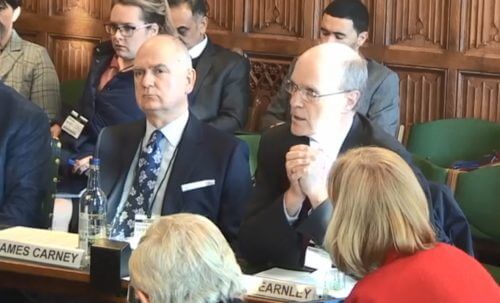The Transport Committee held another evidence session for its Health of the Bus Market inquiry on Wednesday 30 January.
In attendance was James Carney, Finance Director, Blackpool Transport; Giles Fearnley, Managing Director, First Bus; John Godfrey, Principal Director, TAS Partnership; and Paul Woods, Interim Chief Finance Officer, North East Combined Authority and Local Government Association.
The Committee was set to investigate how spending cuts have affected local authority budgets and their ability to subsidise bus services and reimbursement rates for concessionary fares.
The committee saw witnesses present on the ‘Health of the Bus Market’ and they were asked a range of questions varying from the profitability of bus services, to the price of bus journeys, multi-modal tickets, funding and BSOG.
Huw Merriman enquired what the witnesses would hope to see if a bus strategy was introduced by the Government and why it would be important.
Paul Woods noted that a strategy would help to raise the profile of buses, which is especially important at a time where it is necessary to tackle air quality issues.

He added that a national strategy would allow a more joined-up approach, enabling cooperation and cohesiveness.
John Godfrey agreed and said that an emphasis on partnership was essential.
In the meeting, Robert Courts suggested that perhaps instead of a bus strategy, an integrated transport strategy would be more effective, to which the witnesses agreed.
Daniel Zeichner raised the point that despite £1bn of public money going in to bus services, both operators and local authorities remain unhappy.
Paul Woods responded to this point by noting that there is a lack of visibility in terms of funding, and a funding gap. It was said that a national strategy would enable more transparency.
Another issue discussed was the consequence of low concessionary reimbursements, meaning that depots have had to shut, including Clacton depot in 2018 – which had previously had employed 65 people and operated between 25 and 30 vehicles.
The Chair concluded that reimbursement for bus operators was unsatisfactory and had a considerable wider impact on operator’s ability to run services.

